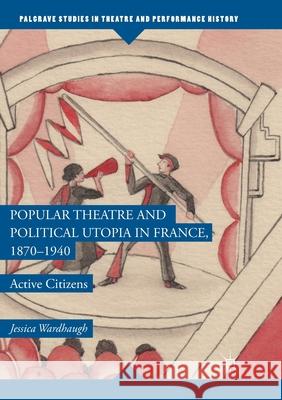Popular Theatre and Political Utopia in France, 1870--1940: Active Citizens » książka
topmenu
Popular Theatre and Political Utopia in France, 1870--1940: Active Citizens
ISBN-13: 9781349955893 / Angielski / Miękka / 2018 / 357 str.
Kategorie:
Kategorie BISAC:
Wydawca:
Palgrave MacMillan
Seria wydawnicza:
Język:
Angielski
ISBN-13:
9781349955893
Rok wydania:
2018
Wydanie:
Softcover Repri
Ilość stron:
357
Waga:
0.45 kg
Wymiary:
21.01 x 14.81 x 1.98
Oprawa:
Miękka
Wolumenów:
01
Dodatkowe informacje:
Wydanie ilustrowane











